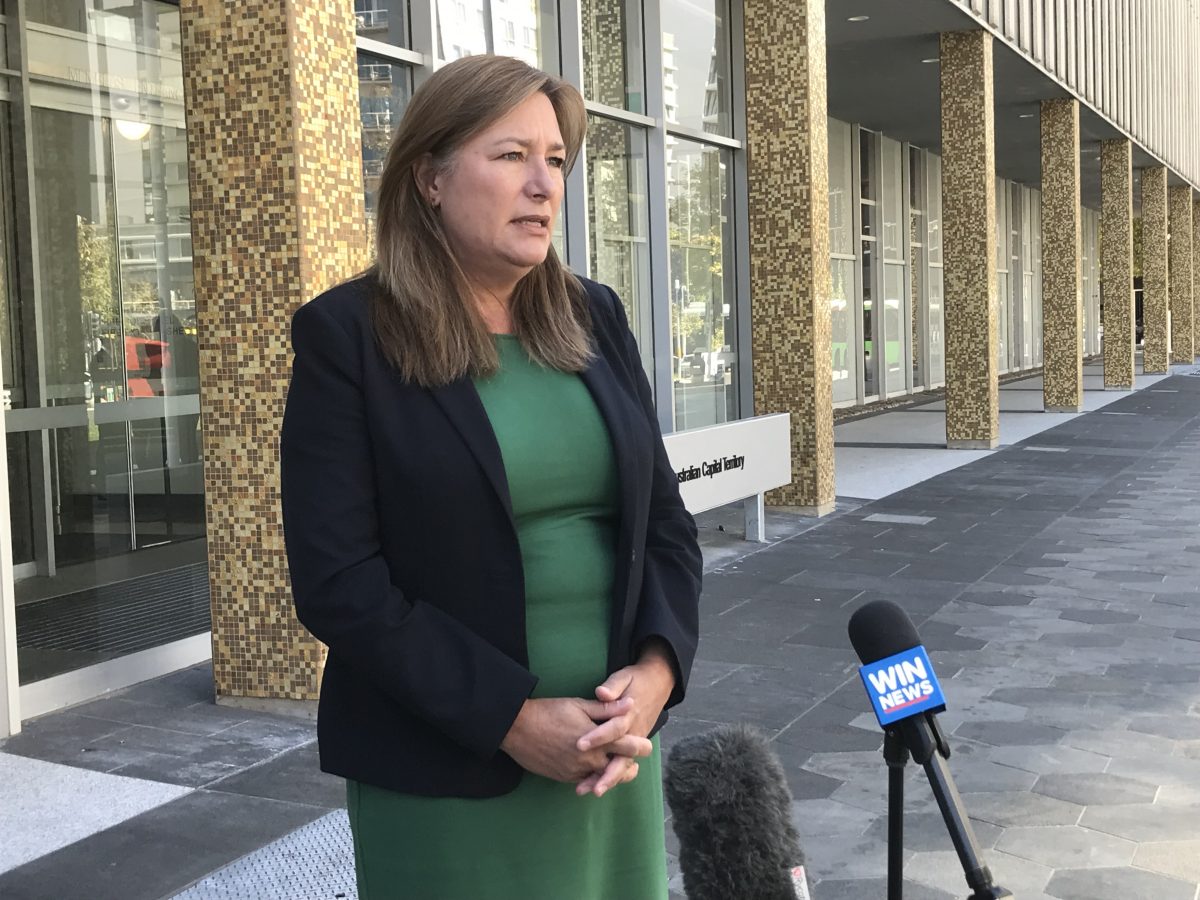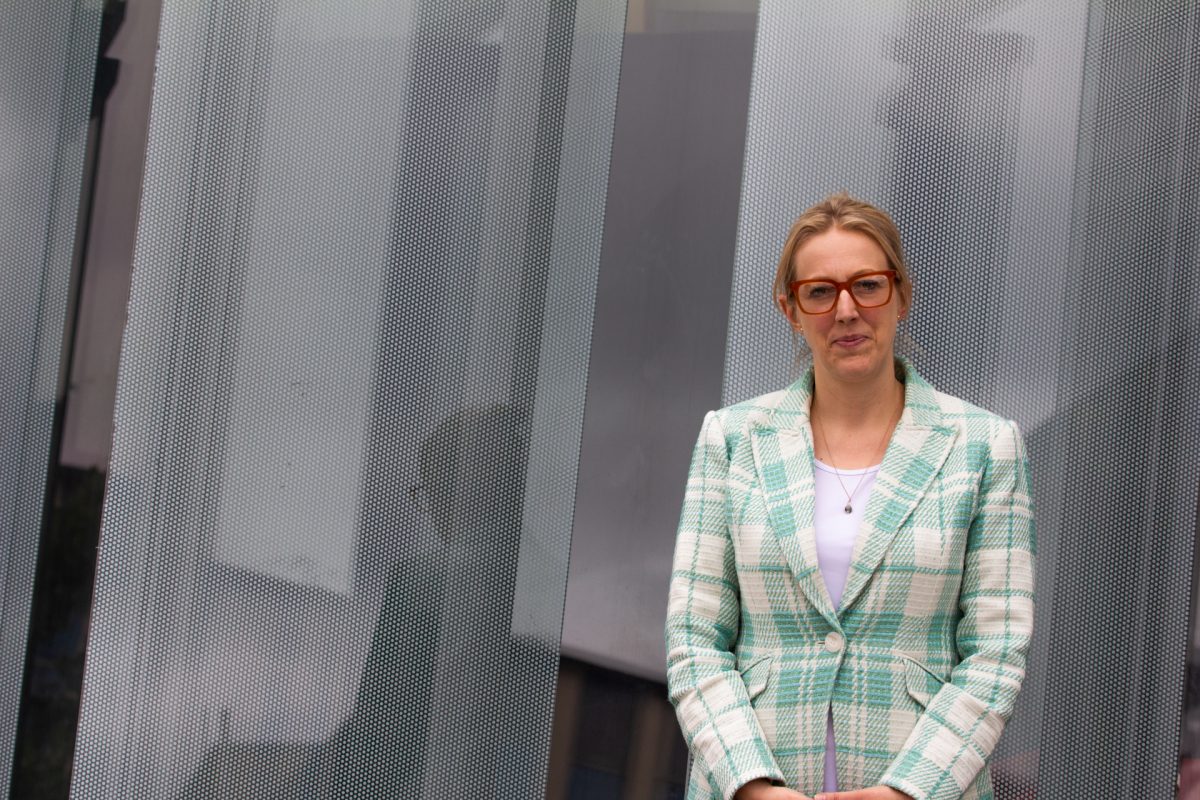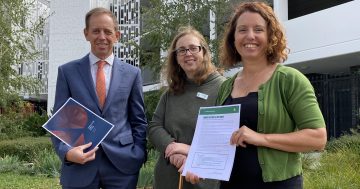
Housing and Suburban Development Minister Yvette Berry is disappointed with ACTCOSS’s stance. Photo: Lottie Twyford.
Hearings to decide whether public housing tenants are exempt from having to relocate as part of the renewal program are getting underway today, but the process has again come under attack from the peak community sector body.
The ACT Council of Social Services (ACTCOSS) accused the government of giving 10 tenants only 48 hours to prepare their cases for exemption.
ACTCOSS CEO Dr Emma Campbell said that despite assurances from the government that the organisation would be updated on a “refined process” for granting exemptions, it had been kept in the dark.
She said the government was supposed to supply a copy of an Exemption Policy and Practice Guideline once finalised, but this had not happened.
“We were therefore astonished to hear that tenants were contacted yesterday and told they had just 48 hours to prepare their case to appear before a ‘Tenant Relocation Exemption Panel’,” she said.
“Further, no information has been made available to tenants or the community sector as to the criteria for decision making; composition, qualification and independence of the panel; time period for the delivery of decisions; whether decisions can be appealed; and whether tenants can appear remotely.”
Dr Campbell said Canberra Community Law had advised ACTCOSS of tenants receiving emails and phone messages on Tuesday (14 June) asking to them appear today (16 June) to state why they should not have to move to new homes so theirs could either be sold or bulldozed for new properties as part of the public housing renewal program.
She said this gave tenants little time to organise time off, advocates to support them and compile a case for staying put.
“We just want a fair process to determine that and giving 48 hours to vulnerable people to put their case forward is certainly not a fair process,” Dr Campbell said.

ACTCOSS CEO Emma Campbell: “We just want a fair process.” Photo: Region Media.
Housing and Suburban Development Minister Yvette Berry has rejected ACTCOSS’s claims.
“It is disappointing that today’s statement from ACTCOSS may cause unnecessary distress to Housing ACT tenants who are part of the Growing and Renewing Public Housing program,” she said.
Ms Berry said that on Tuesday, 10 tenants who applied for an exemption early in the process had been invited to meet with the Tenant Relocation Exemption Panel today or tomorrow.
“However, these meetings will be ongoing and no one needs to attend a meeting this week if they don’t want to,” she said.
“These meetings are just an opportunity for tenants and any support people they’d like to bring to attend a meeting to discuss their needs and reasons for seeking an exemption to relocation to support their application if they wish to.
“The ACT Government is committed to ensuring that people have a chance to discuss why they may not want to move and to talk about what supports they might need if they do.”
Housing ACT said that of 10 tenants contacted, three had requested a Panel session at a later date, three are attending this week in person, one is attending by phone and three have asked not to attend a Panel session in relation to their application for exemption.
It said the 10 tenants were told that the Panel, which includes non-government representatives, would consider their requests for exemption.
“Some tenants have been waiting since April 2022 for a decision regarding exemption, so were offered the first available opportunity to attend a Panel session,” Housing ACT said.
“These Panel sessions are not formal hearings. They are an opportunity for tenants and any support people they’d like to bring to attend a meeting to discuss their needs and reasons for seeking an exemption to relocation.”
Housing ACT said there would be multiple Panel sessions, and tenants could choose a later date if they prefer.
All tenants were advised by phone and/or email that they could attend or nominate a representative to attend a Panel in person or over the phone if they wished to.
To date, nine tenants have been given an exemption, 26 have refused to move, 101 have agreed to relocate and are waiting to move, and 350 have already moved.
Housing ACT said it was committed to ensuring tenants clearly understood the exemptions process and related information and was rolling out information to tenants progressively.
Age, health and wellbeing were the main criteria for exemption and there needed to be a strong connection between the requirement to move and a significant risk to health and wellbeing.
The Panel would consider these reasons and the tenant’s ability to relocate in balance with the needs of the renewal program, which has a target of building 1,400 new dwellings by 2024-25.
ACTCOSS supports building new public housing but believes there are alternatives to relocating tenants who have been in the same properties for decades and do not want to move.
Dr Campbell said this included relocating other tenants who would be happy to move, extra government investment and providing affordable land with rates rebates to the community housing sector so it could also deliver more properties.



















